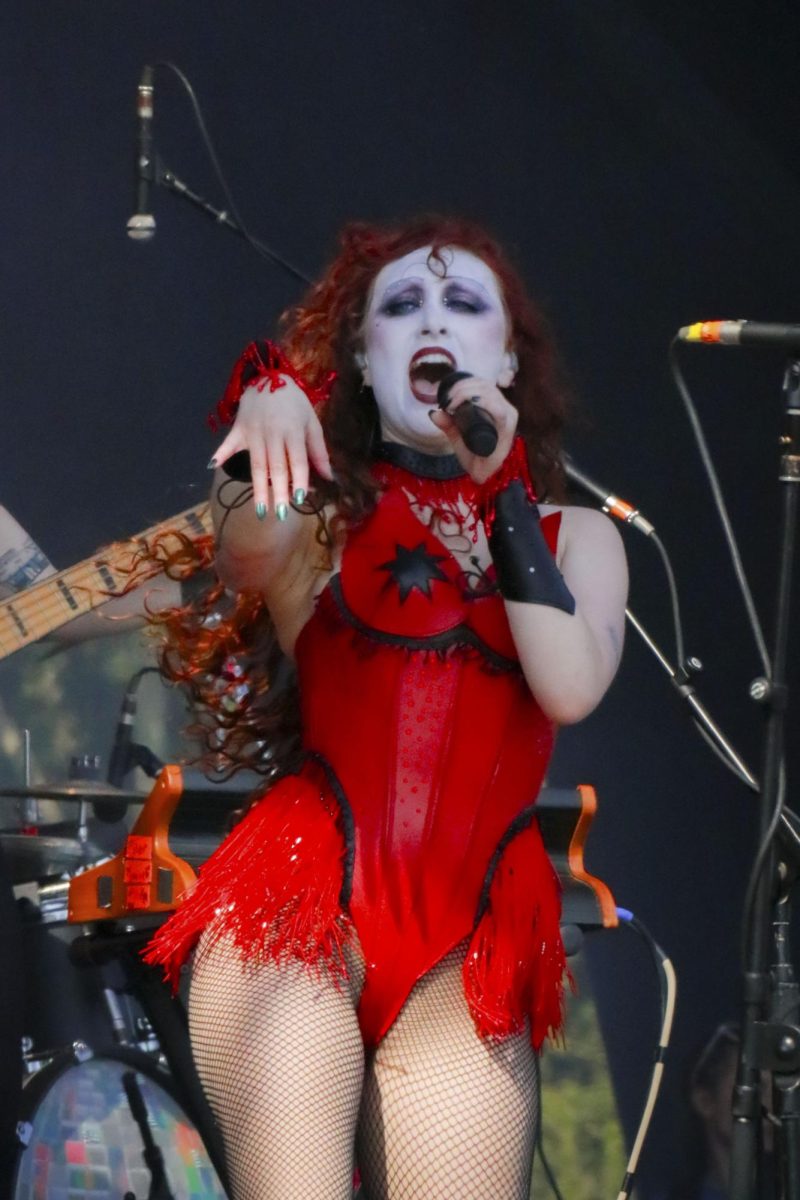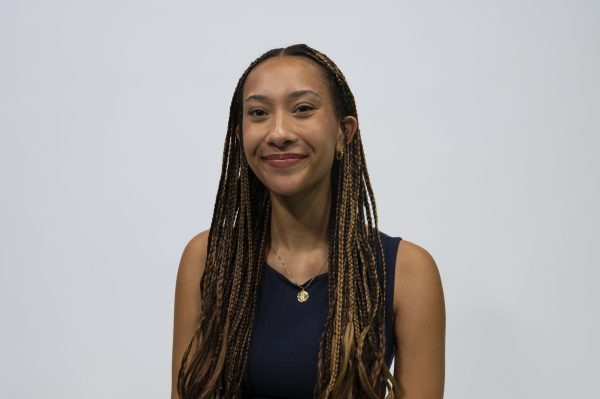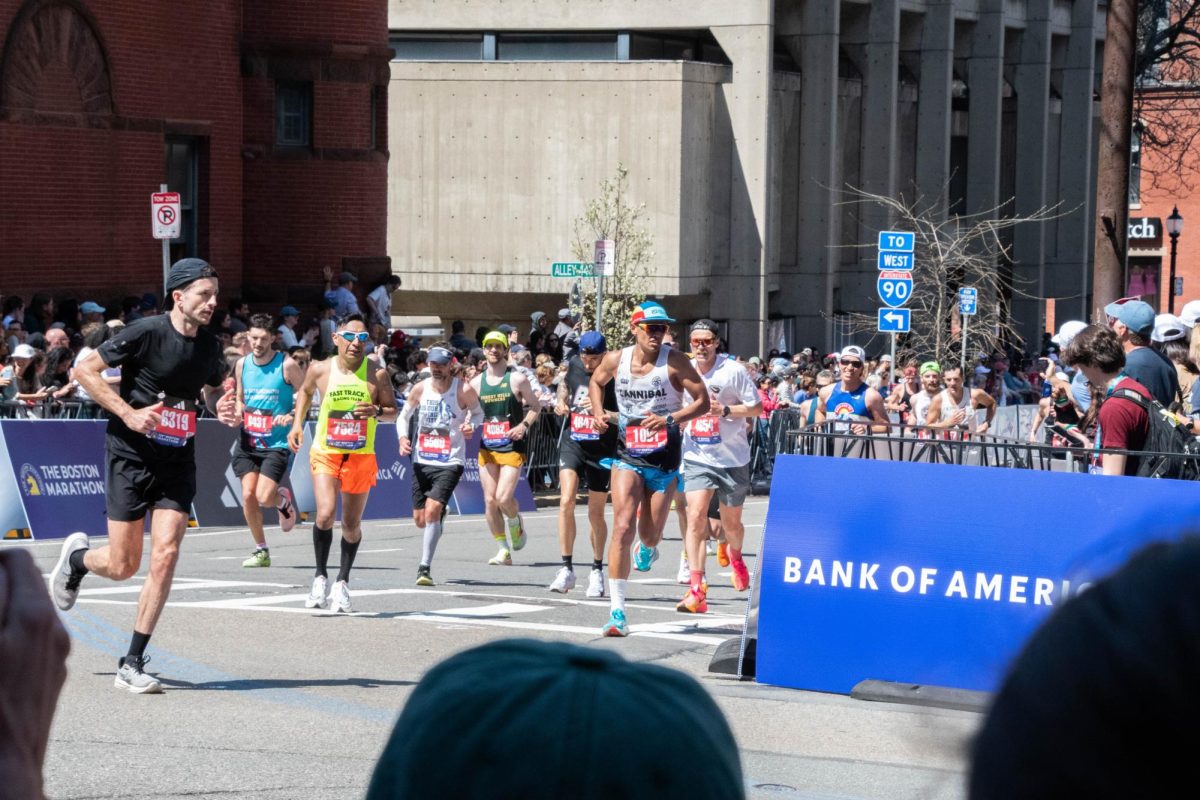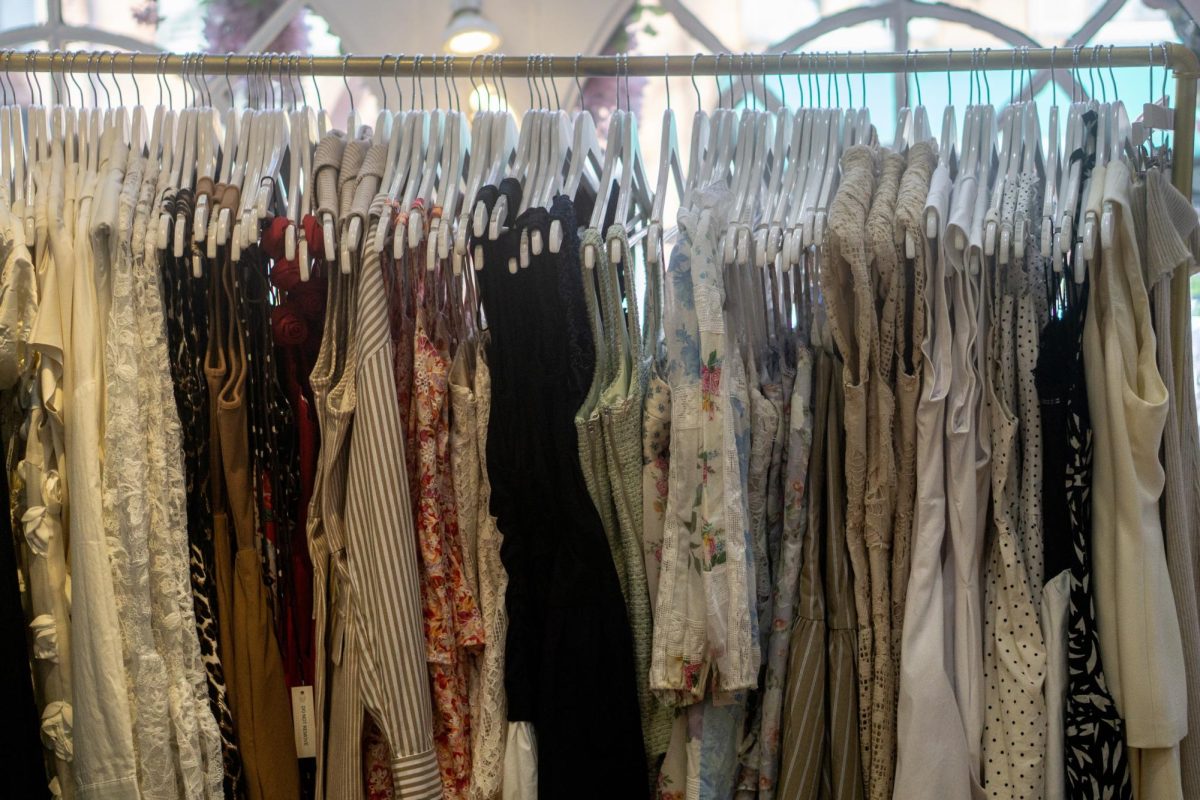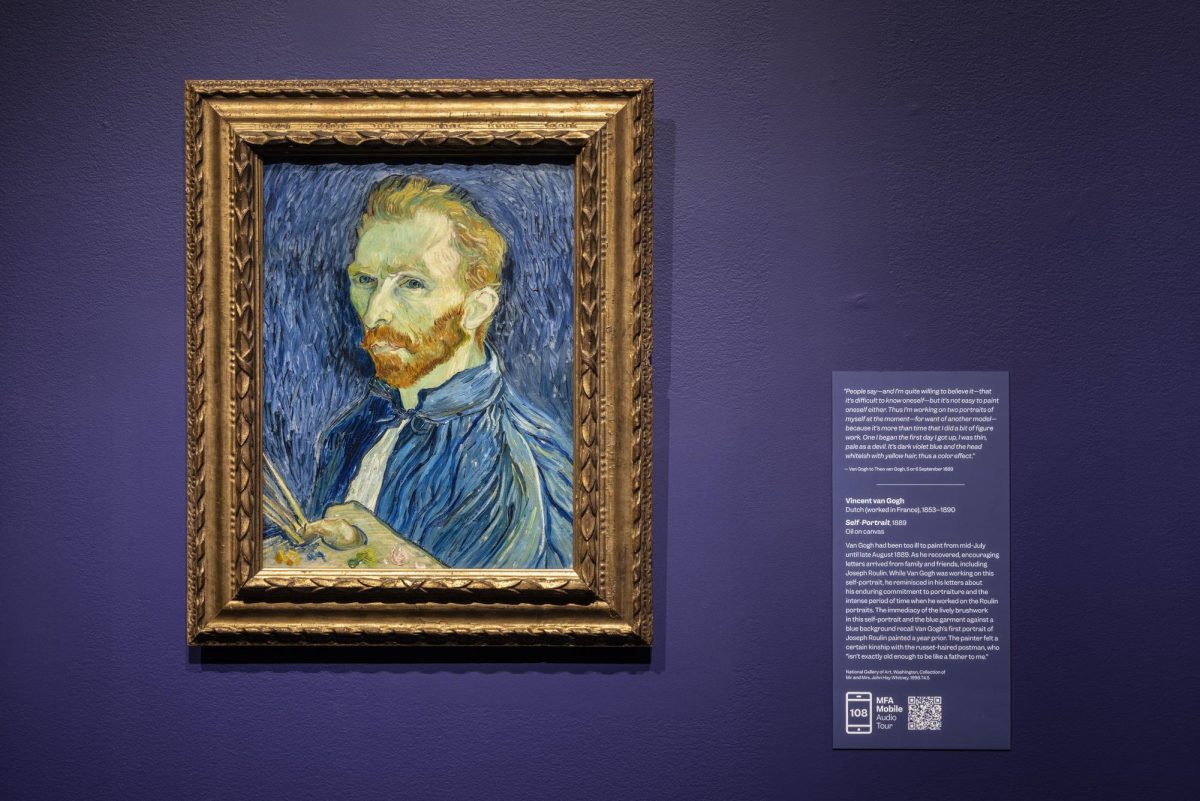In September 2023, singer-songwriter Chappell Roan sat at about one million monthly listeners on Spotify.
Roan secured an opening gig on Olivia Rodrigo’s “GUTS World Tour” in early 2024 as well as several dates along Rodrigo’s previous “Sour Tour,” performing to mildly interested audiences.
Now, the pop culture monolith boasts 45.2 million monthly listeners on Spotify and brought the largest crowd to a Lollapalooza stage in the festival’s history.
It’s been just over one year since the release of Roan’s first full-length album “The Rise and Fall of a Midwest Princess,” a work that traverses heartbreak and the peaks and valleys of Roan coming into her queer identity.
“It is the storyline of a girl who moved from a small conservative town to a city and had an awakening of this world she never knew existed,” Roan told Teen Vogue.
Though, in many ways, “Midwest Princess” feels like a smashing debut, overnight success, as it turns out, is actually cultivated over the course of a decade. Roan started releasing singles that would eventually appear on her album as far back as “California” in 2020. Before ever gaining widescale momentum, Roan’s discography previously spanned two EPs and ten years of effort.
“I’m just kind of like … I’ve been here the whole time!” Roan told The Face magazine in reference to her newfound fame.
Characterized by her eccentricity, Roan has arguably one of the most identifiable looks in the music industry today, uniquely distinguished by her white face paint, outlandishly intricate costumes and, of course, her signature head of spiraling red curls.
Twenty-six-year-old Roan was born Kayleigh Rose Amstutz in the small city of Willard, Missouri — an upbringing that’s a far cry from her onstage drag-inspired persona.
As a teenager, Roan uploaded cover videos to YouTube and eventually progressed to writing her own songs and performing in musical showcases. Slowly garnering industry recognition, she signed to Atlantic Records in May 2015. The following year, she took on the stage name “Chappell Roan” in honor of her deceased grandfather, Dennis K. Chappell, and his favorite song, Marty Robbins’ “The Strawberry Roan.”
In 2018, she moved to Los Angeles, where she seemingly took two steps back for every step forward in her career. With the 2020 release of her song “Pink Pony Club,” Roan started to define her infectious pop-princess sound as we know it today.
That same year, she found herself dropped from Atlantic Records for a lack of commercial success.
A disheartened Roan quietly moved back to Missouri in 2021, where she worked on her music independently and slung beverages in the drive-thru of her local Scooter’s Coffee. Little did the coffee shop’s patrons know, the girl routinely handing them their cappuccinos would soon be the next big name in the music industry. Roan gave herself an ultimatum — one more year in Los Angeles. That’s it.
“I was just like, ‘You have to keep going. You have to give this a shot. What if it’s right around the corner?’” she told The Face.
With the help of collaborator Dan Nigro, in 2022, Roan released singles “My Kink is Karma,” “Femininomenon” and “Casual,” slowly amassing a fanbase that resonated with her campy, hyperfeminine sound and dedication to supporting the queer community. She signed a deal with Nigro’s Amusement Records — a subsidiary of Island Records that Nigro created out of passion for his and Roan’s collaboration.
These singles paved the path for the sneaking success of “The Rise and Fall of a Midwest Princess,” which came about not during its initial September 2023 release, but months later in 2024.
Her subsequent rise to popularity was nothing less than astronomical. Songs like “Red Wine Supernova” and “HOT TO GO!” became nationwide anthems, and on August’s Billboard 200 charts, “Midwest Princess” was surpassed only by megastar Taylor Swift’s “The Tortured Poets Department.”
A Roan appearance became the most prized appearance to have. She made her Coachella, Tonight Show and Lollapalooza debuts all within a few months. The White House invited her to perform at their Pride celebration, which Roan declined in favor of calling attention to Biden administration flaws and showing support for Palestinians in the ongoing war in Gaza.
Roan has undoubtedly hit her stride in the mainstream. At the Video Music Awards last month, after putting on a strikingly theatrical performance of her latest single, “Good Luck, Babe!” she took home the highly sought-after award for “Best New Artist.”
“I dedicate this to all the drag artists who inspire me, and I dedicate this to queer and trans people who fuel pop,” Roan said in her acceptance speech. “Thank you to the people who are fans, who listen to me, who hear me when I share my joy and fears. Thank you for listening.”
Taking her seat amongst Generation Z’s top pop female powerhouses, Roan’s larger-than-life rise to fame is something like watching a modern-day Madonna find her place in the spotlight.
This, of course, doesn’t come without its repercussions. Even a decade of trying to find her footing in the industry couldn’t have prepared her for what was to come. Roan has become increasingly outspoken on the invasive nature of being in the spotlight.
Roan replied to an onslaught of in-person recognition and several recent incidents involving her family in an August TikTok, saying, “I don’t care that abuse and harassment — stalking — is a normal thing to do to people who are famous. I don’t care that this crazy type of behavior comes along with the job or career field I’ve chosen. It doesn’t make it okay.”
This fall, Roan faced mixed reactions from fans after canceling both her slots for the All Things Go music festival just one day ahead of her scheduled performances. With many fans having made special travel arrangements specifically for Roan, she garnered backlash for a pattern of not honoring recent commitments. Roan is currently on tour, and shortly before All Things Go, she canceled Amsterdam and Paris tour dates in favor of performing at the Video Music Awards.
She was also subject to controversy over insults to her fans’ intelligence when they reacted to several statements she made equivocating the right and the left in the upcoming presidential election. In a recent TikTok, Roan ruffled feathers, implying that fans didn’t possess the media literacy to understand what she’d been trying to communicate.
“I’m sorry that you fell for the clickbait,” Roan said in light of the responses she received.
Roan refers to “Midwest Princess” as her “project” and the character of “Chappell” as her persona, asking that fans not refer to her by her given name, Kayleigh, in order to keep a healthy distance between her personal life and her fame.
Still, Roan maintains a fiercely dedicated fanbase, which has hung on to her every word as to what’s to come post “Midwest Princess.” She’s given listeners a taste of her upcoming sound with “Good Luck, Babe!” as well as her unreleased ballad, “Subway,” which she’s performed along tour stops to the delight of many.
As stated in her VMAs acceptance speech, for Roan, the most important thing to come out of “Midwest Princess’” success was representation and visibility for her community.
Roan wants her fanbase to know, “For all the queer kids in the Midwest watching right now, I see you. I understand you, because I’m one of you. And don’t ever let anyone tell you that you can’t be exactly who you want to be.”



